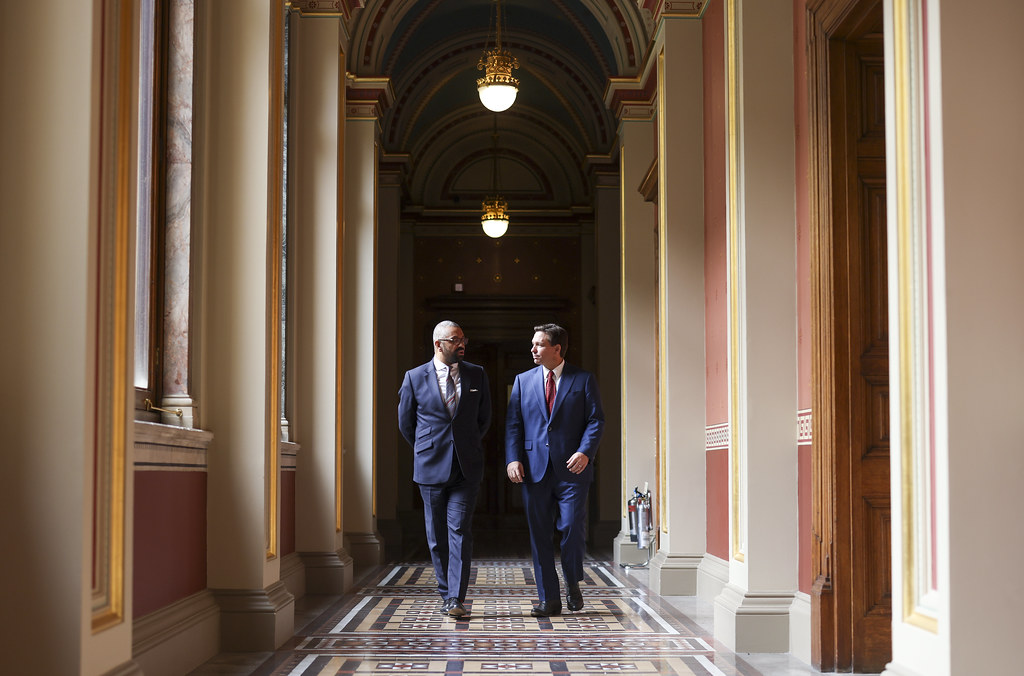In the annals of shady political maneuvering, Governor Ron DeSantis of Florida has deftly added another chapter. Today he signed a bill into law that shields records pertaining to his travel from the prying eyes of the public, effectively evading the scrutiny that comes with transparency.
Under the guise of protecting the governor’s security and preventing potential threats, the law prohibits law enforcement agencies from sharing any records related to his travel and security, as well as those requested by the governor. Its broad language even allows for trips arranged by his office to be concealed, even if the governor himself is not directly involved.
Critics argue that this move is a calculated attempt by DeSantis to mask damaging information about his travels as he is poised to embark on a presidential campaign. Recent trips to Israel, the UK, and several primary states have raised eyebrows, and now this law conveniently erects a wall of secrecy to prevent any inconvenient truths from surfacing.
By blocking the disclosure of state travel records, DeSantis undermines the trust that should exist between the government and the governed. It sends a message that the interests of those in power supersede the interests of the people. Furthermore, this decision sets a dangerous precedent. It opens the door to further erosion of transparency and accountability in government. The potential for abuse and corruption grows exponentially when officials can operate without public scrutiny.
In a display of party loyalty, Republicans defend the measure as necessary to safeguard DeSantis and thwart potential threats against him. However, it is worth noting that DeSantis himself claimed that the idea was not his own, deflecting responsibility for this assault on transparency.
The bill seems at odds with Florida’s state constitution which ensures public access to state records. More than that, it undermines the very essence of open government. It reaches back retroactively, covering the governor’s extensive use of state planes throughout his tenure, and extends its reach to records pertaining to visitors of the governor’s mansion.
Ironically, this masking of the Governor’s activities comes as DeSantis signed a bill banning schools and businesses from implementing mask mandates of their own. The governor’s approach to governance seems marked by a persistent disregard for expert advice and a penchant for prioritizing political expediency over public health.
The move to conceal state travel records from public scrutiny is a betrayal of the principles of openness and accountability. It creates a cloak of secrecy that shields politicians from public scrutiny, allowing them to operate in the shadows without the watchful eyes of the people they are meant to serve.
